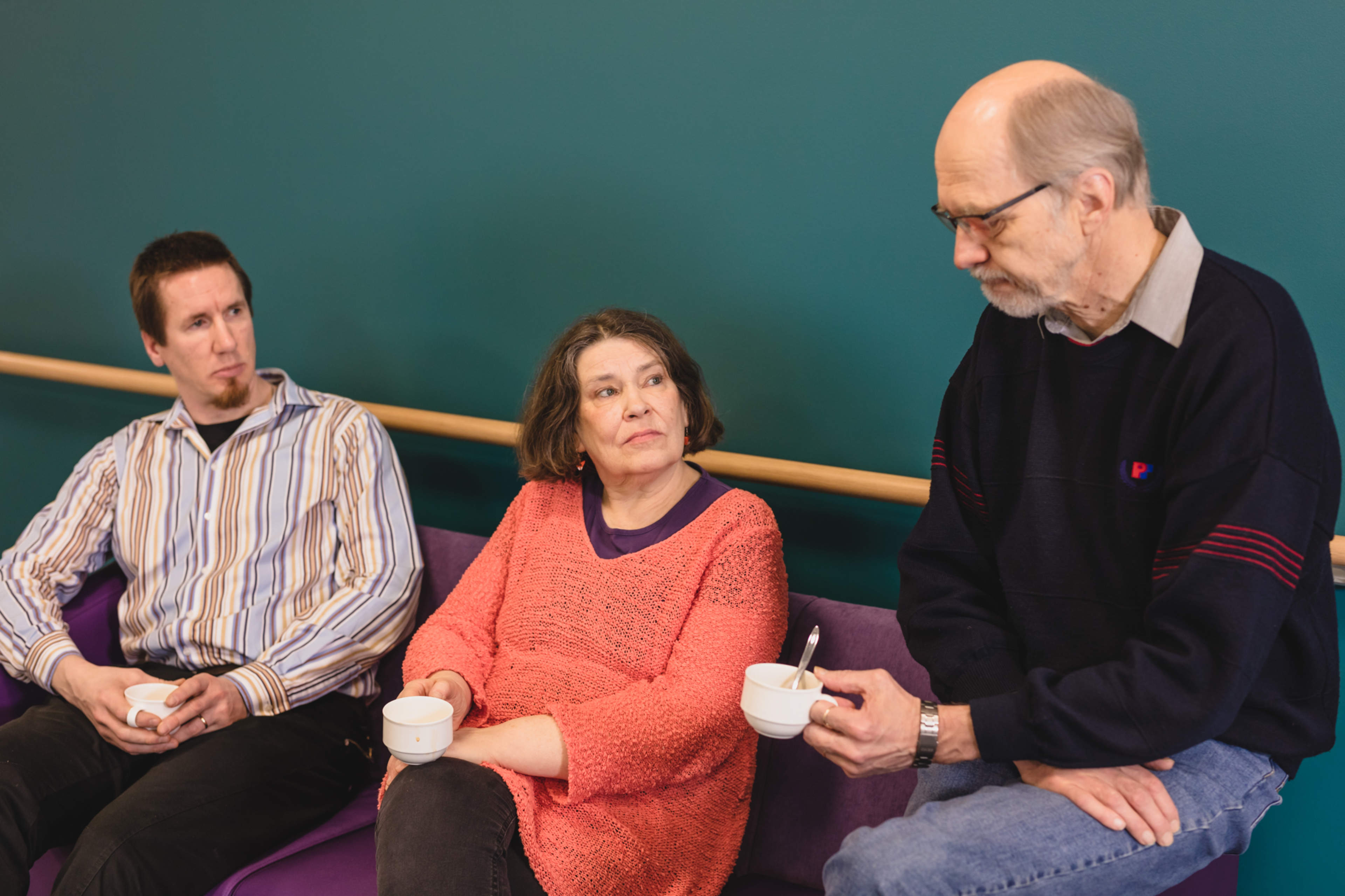Peer support
Peer support involves sharing experiences with someone who has been in the same situation. Peer support means support based on experiential knowledge, with sharing and listening as the main components. Peer support is based on the idea that a peer – someone who has been in the same situation – can understand what a person with an illness, or a person close to them, is going through.
Peer support can take place in groups or as a one-on-one activity. Peer support is provided by patient organisations and associations as well as parishes, among others.
Organisations
Patient organisations are there for the patient and their loved ones. They provide services such as information, support, promoting interests, education, and recreational activities. The organisations also engage in influencing on a societal level. Patient organisations are usually formed around a specific disease or disease group.
While there is no patient organisation specifically for patients receiving palliative care or hospice care, various patient organisations catering to specific disease groups take palliative care and hospice care into consideration in their activities. The focus depends on the nature of the disease or disease group represented by the organisation.
Vertaistalo (“Peer Hub”) is a resource for people living with an illness and their loved ones that helps people find peer support as well as reliable information about the topic. At Peer Hub, information about different forms of peer support provided by various patient organisations can be found in one place. At the moment, Peer Hub is available in Finnish and Swedish.


